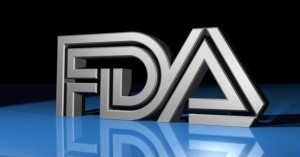Food Importers and Producers Will See Major Changes from New FDA Rules
Food Importers and Producers Will See Major Changes from New FDA Rules
New food safety rules announced Nov. 13 by the Food and Drug Administration will have a major impact on food importers and foreign producers of food for the U.S. market. For the first time, importers will be accountable for verifying that imported food meets U.S. safety standards and food producers will be subject to enforceable safety standards. The FDA has also created a new program to accredit third-party certification bodies that will conduct food safety audits of foreign food facilities. These rules will be effective as of Jan. 26, 2016.
Sandler, Travis & Rosenberg’s FDA Practice Group will hold a webinar Nov. 18 to review the major changes contained in the new regulations and highlight the requirements they impose on importers, producers and others. Click here to register.
 The foreign supplier verification programs rule requires importers of food for humans or animals, with some exceptions, to verify that the food they import is produced in compliance with the hazard analysis and risk-based preventive controls and standards for produce safety provisions of the Federal Food, Drug and Cosmetic Act, is not adulterated, and is not misbranded with respect to food allergen labeling. The FDA states that this rule is designed to be flexible based on risk and that the requirements vary based on the type of food product (e.g., processed foods, produce and dietary supplements) and category of importer.
The foreign supplier verification programs rule requires importers of food for humans or animals, with some exceptions, to verify that the food they import is produced in compliance with the hazard analysis and risk-based preventive controls and standards for produce safety provisions of the Federal Food, Drug and Cosmetic Act, is not adulterated, and is not misbranded with respect to food allergen labeling. The FDA states that this rule is designed to be flexible based on risk and that the requirements vary based on the type of food product (e.g., processed foods, produce and dietary supplements) and category of importer.
The produce safety rule establishes science-based standards for growing, harvesting, packing and holding most produce. These standards include requirements for water quality, employee health and hygiene, wild and domesticated animals, biological soil amendments of animal origin (such as compost and manure), and equipment, tools and buildings.
The last rule establishes a program for the accreditation of third-party certification bodies (auditors) to conduct food safety audits of foreign food entities, including registered foreign food facilities, and certify that they and the food they produce meet applicable food safety requirements. These certifications will be required for participation in the FDA’s voluntary qualified importer program, which offers participants expedited review and entry of food that is part of the VQIP. In addition, in certain circumstances the FDA will require as a condition of entry a certification issued by either a third-party certification body accredited under this rule or an agency or representative of the government of the country from which the food originated.
The FDA has now issued five of the seven major rules required to implement the core of the Food Safety Modernization Act. The previous two, setting forth preventive controls for human and animal food, were published in September and will start taking effect next fall.
For more information on the FDA’s new rules, you can contact your Scarbrough representative or email info@scarbrough-intl.com.
